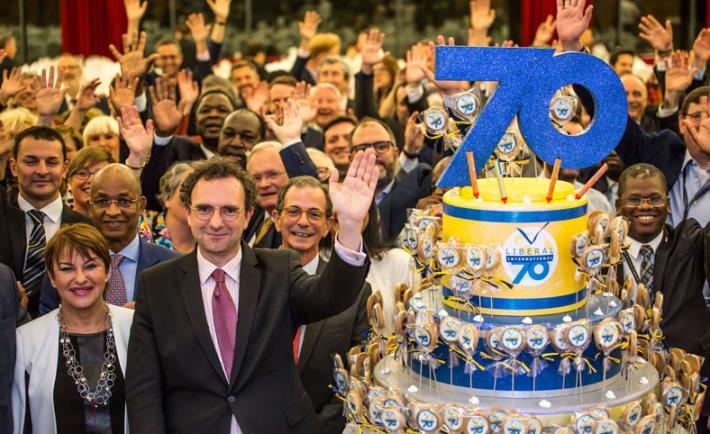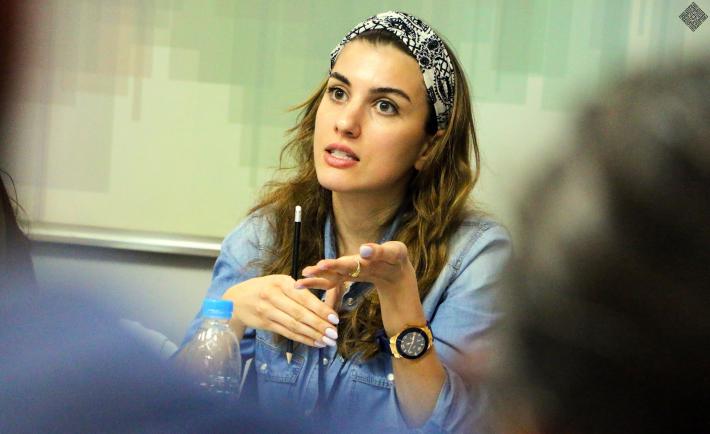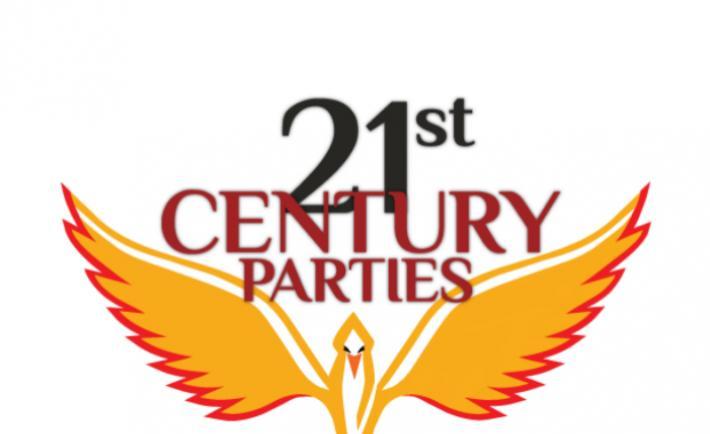A lot has been said and written about the #MeToo movement and how it continues to galvanize the voices of hundreds of women and men from around the world. Most strikingly, it is a strident call-to-arms for women to become the agents of their own conscience, bodies and destinies. The sweeping victory for female candidates from diverse backgrounds in the recent U.S. midterm elections is a clear signal that women are rightfully coming forward to claim their space and power in society.
Beyond the Numbers: Building Inclusive Political Parties For Success
Moving Closer to Citizens: NDI’s Global Study on Political Party Development
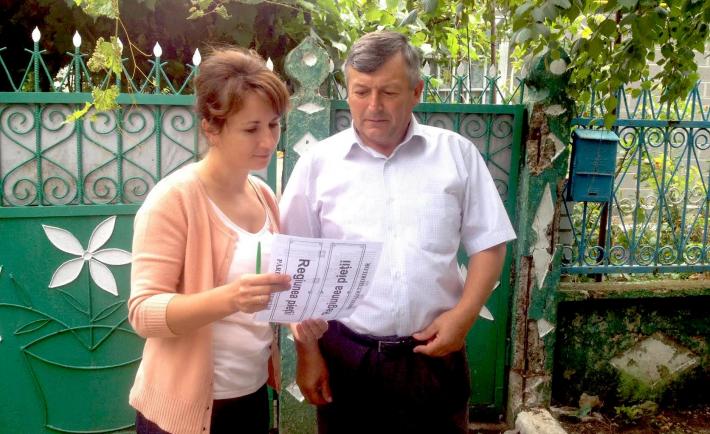
Grassroots party building participant distributes door-to-door questionnaires in Ștefan Vodă, Moldova
Around the world, public opinion polling reveals ever increasing levels of citizen distrust in traditional political parties. This distrust — coupled with fragile party connections with citizens — has increasingly resulted in losses in electoral support to populist forces and social movements that appear to be more responsive to citizens’ concerns. However, government’s ability to meet citizens’ expectations and deliver public goods relies heavily on political parties’ capacity to propose and implement quality, citizen-informed policies. To address these realities, NDI assists political parties to strengthen relationships with citizens, respond to their needs, deliver on campaign promises and improve public welfare. NDI recently concluded research to capture successes and lessons learned in policy development programs across the Institute. Based on this research, here’s some of what we’ve learned:
No Party to Violence: An Assessment from Côte d’Ivoire
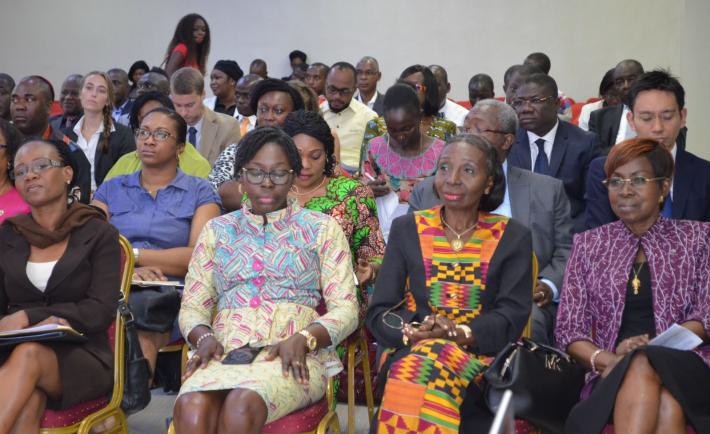
Representatives of Ivorian and international institutions, embassies, political parties and civil society join NDI’s cross-party exchange to discuss key actions that could be taken to address and mitigate violence against women in political parties.
In Côte d’Ivoire, as we have found in many other places around the world, violence against women in politics has long been hidden, unknown, unrecognized, ignored or considered part of the "normal" practice of politics or as the "cost of politics." This is true for women across political sectors, including as voters, candidates, activists and elected or appointed officials. While political parties in Côte d’Ivoire serve as critical pathways for women’s political participation and engagement, including for young or new politicians, they continue to be male-dominated institutions, which allows and enables violence against women in their ranks. Because women believe that speaking out will at best have no real impact, and at worst make their situations worse, the violence women face within political parties has also gone largely unreported.
NDI Goes to Brussels
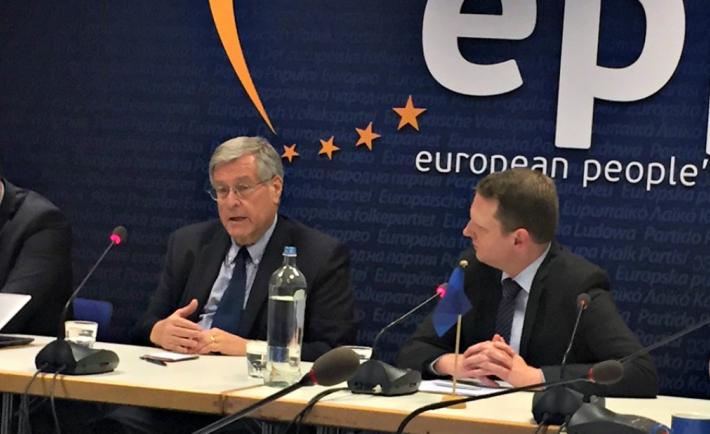
NDI President Ken Wollack addressing leaders of the EPP, ALDE and PES parties at EPP headquarters in Brussels, October 2017
NDI President Ken Wollack visited Brussels this fall to discuss how democracy is faring in Central and Eastern Europe as the region confronts heightened Kremlin involvement, democratic backsliding and rising skepticism over European integration. Among other interlocutors, Wollack met with leaders of the European People’s Party (EPP), the Alliance of Liberals and Democrats in Europe (ALDE), and the Party of European Socialists (PES), plus affiliated think tanks. NDI has affiliation with all three party groups and works with them to support political party development and reform.
The European leaders spoke of combining forces in the former Yugoslavia, Central Europe and Eastern Partnership countries to resolve ongoing partisan conflicts that harm good governance and political consensus. It’s the kind of demonstrable engagement that Europe can make at a time when many countries, both in and outside of the European Union (EU), need democracy booster shots. NDI’s in-country programs and longstanding relations with European political parties across the mainstream spectrum make the Institute a bridge between Brussels and Europe’s eastern reaches.
Lebanese Youth Leaders Unite to Advocate for Reform
Youth in Lebanon have not had much opportunity to learn about democracy or how they can be involved in democratic governance. NDI conducted a survey in April 2017 suggesting nearly one-third of the electorate has never voted in parliamentary elections—not because they do not want to, but because parliamentary elections have not been held in the eight years since they became eligible to vote. Yet, despite the challenges they face, many young Lebanese men and women are highly motivated to act to improve their living conditions and basic rights.
Make Sure You Aren’t the Last
I come from a long line of tough, trailblazing, phenomenal women. My grandmother would go into villages in India with a bullhorn, telling poor women how to access birth control. My mother came to the U.S. at the age of nineteen to study endocrinology at University of California-Berkeley and eventually became a leading breast cancer researcher. There’s no way I could have begun my political journey without strong role models like them to inspire me.
New Challenges and Opportunities for Democracy in the Western Hemisphere
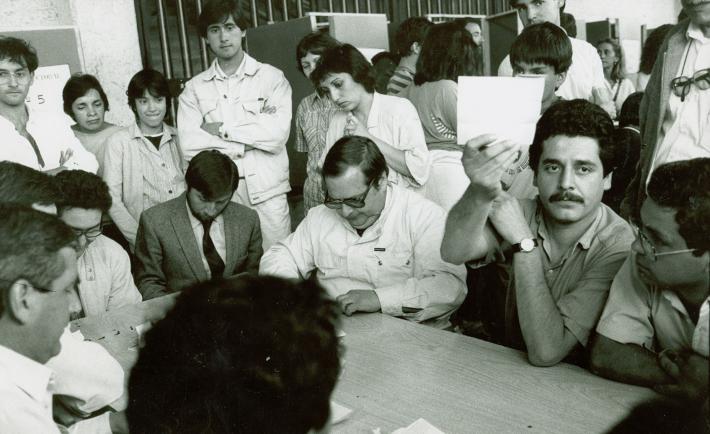
Election workers count votes during Chile’s 1988 plebiscite, which ended Pinochet’s dictatorship. Source: Flickr
When I started out as a junior State Department diplomat at the close of the Carter Administration in the dark days of the Cold War, the state of democracy in Latin America was abysmal. Military dictatorship was the norm throughout the region. During my early State Department years I worked to support, sustain, and contribute to the so-called third wave of democracy in the Americas that helped make the Latin America region, as the Economist recently said, “the most democratic region of the developing world,” behind only North America and Western Europe.
Being Bold for Change in Guatemala
In 2013, while I was working in partnership with NDI Guatemala, I became interested in encouraging more women to get involved in politics, so I applied for the Andi Parhamovich Fellowship. I proposed a project focused on increasing women's participation as decision-makers in Guatemala - a huge challenge for me considering my background was in the sciences and I was new to politics.
Through my APF project I worked on a training program to prepare female candidates, who defied gender stereotypes, for the legislative elections in 2015, but we never expected a year like that.
Three Challenges Faced by Political Parties in the 21st Century
On January 9th and 10th, the National Democratic Institute hosted the 21st Century Parties Conference in Brussels, Belgium. Party experts and assistance providers convened to discuss three important issues many parties struggle with around the globe: inclusion and citizen relations, ideology, and political party finance. The conversation was framed around the idea that democracy is a process, not an end goal. As former Secretary-General of the Spanish Socialist Workers' Party, Pedro Sánchez pointed out, “Democracy is always an unfinished building, it is always a work in progress….and we should see it as something that needs to evolve.” The following are outcomes from each of the three challenges discussed:
Political Parties in Kosovo Should Be the Cornerstone of Democracy, Not a Gimmick.
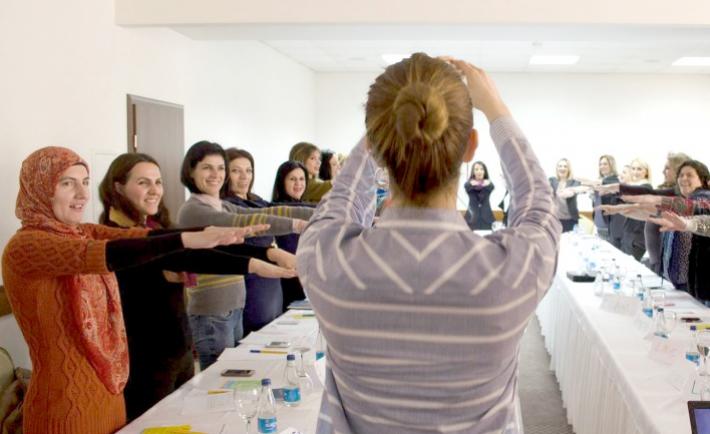
Cross-party training events like this one, part of the Women Political Empowerment Training conducted by NDI, would have a bigger impact if political parties in Kosovo became more inclusive and created a space for women and youth.
In a small country like Kosovo, in order to “get things done,” you need to be affiliated with a political party, understand how to navigate the political system and lobby hard for your cause. None of these requirements would be an issue if ideologies and policies were at the heart of discussion and negotiations. Instead, party affiliation in Kosovo is based on business relationships - not policy - and this political culture undermines internal party democracy.

